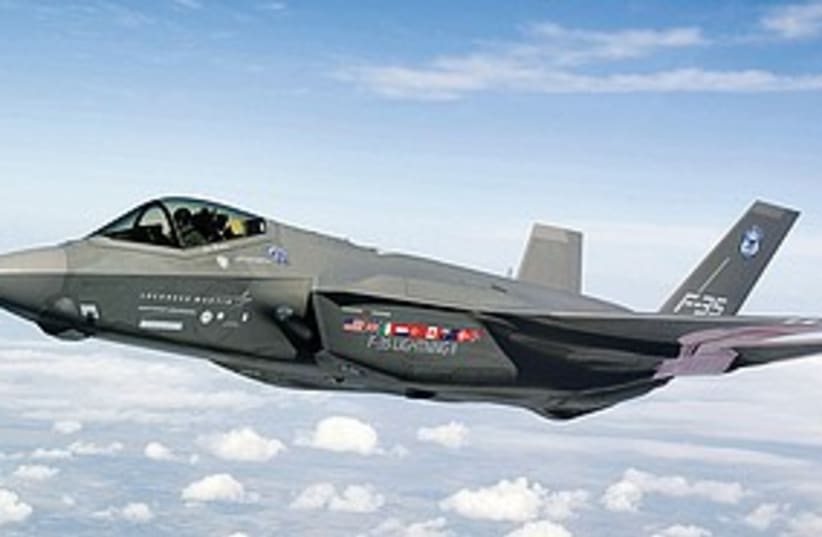RELATED:With F-35 delay, IAF looking at purchase of used F-15s Stealth power US refuses to confirm offer of 20 F-35 fighter jets As a result, the IAF is hoping to obtain Pentagon approval for IAF pilots to begin training in the US as early as 2016, around the time that American pilots will begin training on the advanced fighter jet.The F-35’s uniqueness stems not only from its stealth capabilities but also due to its integrated sensor suite which provides pilots with unprecedented situational awareness and enables the sharing of information between the various aircraft.If approved, IAF pilots will train for around a year in the US and then return to Israel with the aircraft delivery, which is expected to commence in 2017 and be completed by 2018. Israel has received Pentagon approval to purchase an additional 55 aircraft.On Wednesday, IAF commander Maj.-Gen. Ido Nehushtan said that while there were delays in the development of the F-35, Israel required the jet, which would provide it with new and unprecedented capabilities.“The plane will provide the air force with new capabilities like in the past when the F-15 and F-16 arrived and pulled the IAF after them in terms of doctrine and operations,” Nehushtan said at a conference at the Fischer Institute for Air and Space Strategic Studies in Herzliya.Nehushtan’s remarks came after the Senate Armed Services Committee questioned top Pentagon officials last week on the aircraft’s rising development costs, expected to now reach $1 trillion.Arizona Sen. John McCain, the top Republican on the committee, referred to the program as “incredibly troubled” and a “train wreck.”He said Lockheed has done an “abysmal job” at containing cost overruns and urged that the company absorb at least some of them. He also suggested that the Defense Department mull possible alternatives to the F-35 if the rising costs cannot be contained.
IAF discussing sending pilots to US for F-35 training
In talks with Pentagon, Israel Air Force hoping to obtain approval to begin training in 2016; 20 jets to be delivered beginning 2017.

RELATED:With F-35 delay, IAF looking at purchase of used F-15s Stealth power US refuses to confirm offer of 20 F-35 fighter jets As a result, the IAF is hoping to obtain Pentagon approval for IAF pilots to begin training in the US as early as 2016, around the time that American pilots will begin training on the advanced fighter jet.The F-35’s uniqueness stems not only from its stealth capabilities but also due to its integrated sensor suite which provides pilots with unprecedented situational awareness and enables the sharing of information between the various aircraft.If approved, IAF pilots will train for around a year in the US and then return to Israel with the aircraft delivery, which is expected to commence in 2017 and be completed by 2018. Israel has received Pentagon approval to purchase an additional 55 aircraft.On Wednesday, IAF commander Maj.-Gen. Ido Nehushtan said that while there were delays in the development of the F-35, Israel required the jet, which would provide it with new and unprecedented capabilities.“The plane will provide the air force with new capabilities like in the past when the F-15 and F-16 arrived and pulled the IAF after them in terms of doctrine and operations,” Nehushtan said at a conference at the Fischer Institute for Air and Space Strategic Studies in Herzliya.Nehushtan’s remarks came after the Senate Armed Services Committee questioned top Pentagon officials last week on the aircraft’s rising development costs, expected to now reach $1 trillion.Arizona Sen. John McCain, the top Republican on the committee, referred to the program as “incredibly troubled” and a “train wreck.”He said Lockheed has done an “abysmal job” at containing cost overruns and urged that the company absorb at least some of them. He also suggested that the Defense Department mull possible alternatives to the F-35 if the rising costs cannot be contained.